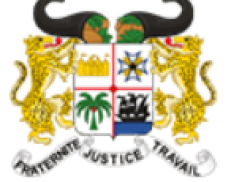Share
Print

The first Minister of Economy and Finance under the regime of "New Departure" whose singer, the President Patrice Talon was invested on April 6, is young as his predecessor. This young minister who has the ability to rub shoulders with the most powerful in the world promises to put his experience at the service of his country. Romuald Wadagni since it is from him that it is going to propel the economy of Benin on the road to prosperity to the great happiness of each other. Who is Romuald Wadagni?
Born June 20, 1976 in Benin, Romuald Wadagni is the Partner of the firm Deloitte France-Dg Deloitte in the DRC. Benin-French, he graduated from Harvard Business School (USA) and the Ecole Supérieure des Affaires in Grenoble (France). He is a Chartered Accountant. A graduate in France and the United States, Romuald Wadagni has more than 17 years of expertise in the French (Paris, Lyon) American (Boston, New York) and African (RDC) firms of Deloitte. For almost eight years now, since 2007, he is the Quality and Risk Manager for all Deloitte subsidiaries in French-speaking Africa. As such, this son of the Lokossa commune intervenes alongside major French and European groups who invest in Africa. Romuald Wadagni was appointed Head of Audit for Francophone Africa of the Deloite Group in November 2015. He is a specialist in international accounting standards, IFRS / US GAAP conversion missions and Offerings type transactions (IPO, fundraising ...) as well as in the restructuring of public and private enterprises.
Since April 7th, 2016, this accountant has been appointed Minister of Economy and Finance of Benin. He replaced Komi Koutche with whom he shares among others, the same year of birth.
Mission & Attributions
The Minister of Economy and Finance has for mission:
drafting Finance bills;
to ensure the preparation of the General Budget of the State;
to ensure the execution and control of the revenue and expenditure of the State;
to monitor and control the finances of local authorities;
implement the Government's policy on debt and project financing;
to monitor the economic situation;
to ensure the establishment and maintenance of a macroeconomic framework that is coherent and conducive to economic growth;
centralize and coordinate all actions aimed at ensuring the proper implementation of macroeconomic policies;
prepare, negotiate and monitor economic and financial programs with the Bretton Woods Institutions;
negotiate loans and manage public debt;
to seek out and mobilize external resources for the financing of projects, programs, budget support and ensure its proper management;
monitor the implementation of financing agreements and agreements relating to projects, programs and budget support of external partners;
coordinate the implementation of budget and fiscal reforms undertaken as part of budgetary support with the international financial community;
ensure the management and permanent control of public finances;
to ensure the control of the regularity and efficiency of the management of all public funds;
to ensure the financial follow-up of the public and semi-public companies in collaboration with the structures concerned;
to perform functions relating to taxation, credit, currency and insurance;
to manage the public and private domains of the State;
to elaborate and implement the Government's regional economic, financial and monetary integration policy;
prepare and monitor the execution of capital expenditures;
ensure, in liaison with the Ministry of Development and the Ministry of Foreign Affairs, relations with national, regional and international financial institutions;
to follow up on all questions of the State's economic and financial policy;
ensure the monitoring and control of decentralized financing structures.
